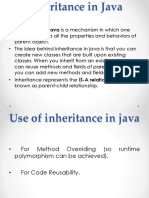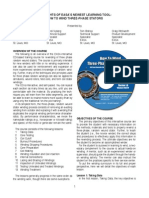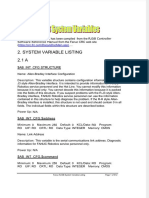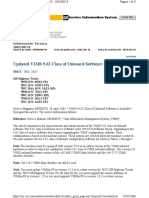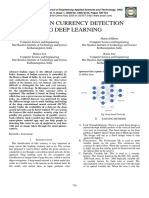0% found this document useful (0 votes)
20 views7 pagesJava Super and Final
The document explains the use of the 'final' keyword in Java to declare constant variables, protect methods from being overridden, and secure classes from being extended. It also covers the 'super' keyword for accessing superclass constructors, methods, and variables, as well as the 'abstract' keyword for defining abstract classes and methods that must be implemented by subclasses. Overall, it provides essential information on these keywords and their functionalities in Java programming.
Uploaded by
Dipak DumbeCopyright
© © All Rights Reserved
We take content rights seriously. If you suspect this is your content, claim it here.
Available Formats
Download as DOCX, PDF, TXT or read online on Scribd
0% found this document useful (0 votes)
20 views7 pagesJava Super and Final
The document explains the use of the 'final' keyword in Java to declare constant variables, protect methods from being overridden, and secure classes from being extended. It also covers the 'super' keyword for accessing superclass constructors, methods, and variables, as well as the 'abstract' keyword for defining abstract classes and methods that must be implemented by subclasses. Overall, it provides essential information on these keywords and their functionalities in Java programming.
Uploaded by
Dipak DumbeCopyright
© © All Rights Reserved
We take content rights seriously. If you suspect this is your content, claim it here.
Available Formats
Download as DOCX, PDF, TXT or read online on Scribd
/ 7







